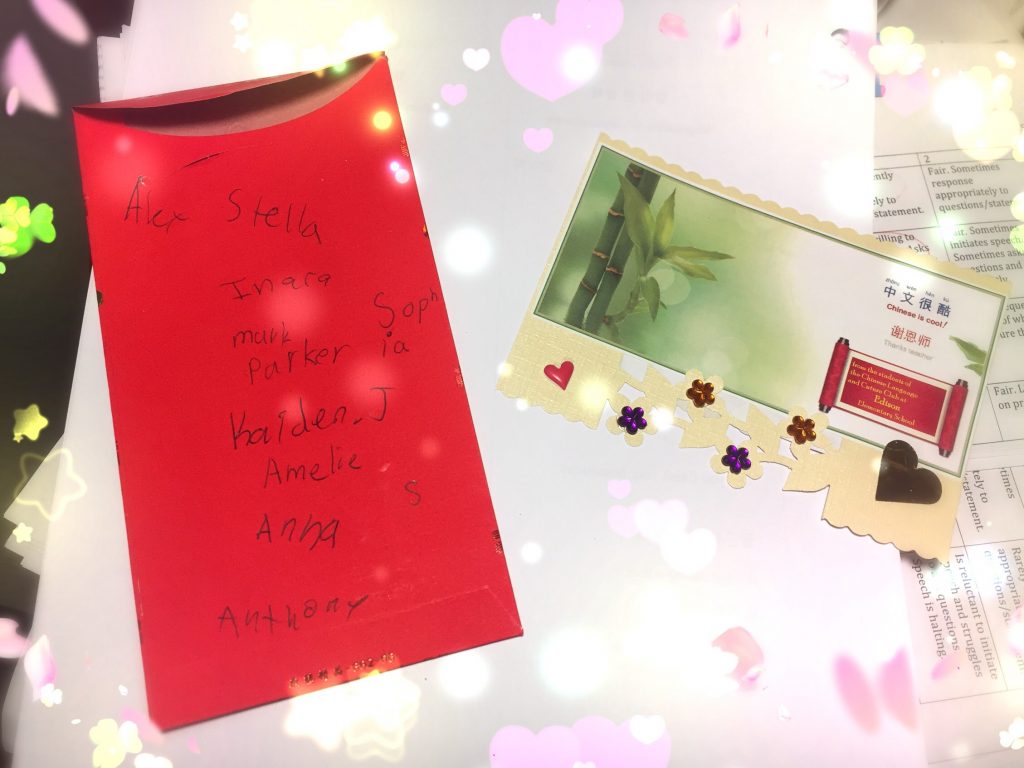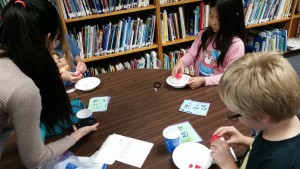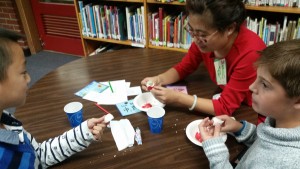Written by: MARK HERBERT, Retrieved from: http://www.telegraph.co.uk/education/2017/01/10/mandarin-can-unlock-childrens-potential-increasingly-connected/
With over one billion speakers worldwide, the global significance of Mandarin Chinese cannot be denied. But with the continued growth of English as a lingua franca of business, travel and international relations, do we really need more young people in the UK to learn it?
The reality is that, at a time when the UK is repositioning itself on the world stage, young people across the UK need to have the knowledge and skills to unlock their potential in an increasingly connected world – and to my mind at least, there are few abilities more valuable than speaking Mandarin Chinese.
The good news is that parents across the UK seem to think so too. Research released last week as part of the Mandarin Excellence Programme highlighted that those with children aged under 18 see Mandarin Chinese as the ‘most beneficial’ non-European language for their children’s future – followed by Arabic and Japanese. As well as 51 per cent of those surveyed believing that speaking Mandarin would boost their children’s career prospects, 56 per cent saw it as a skill that would open their children’s minds to an ‘exciting and dynamic culture’.

But are parents correct in thinking that Mandarin Chinese will prove fruitful for their children’s futures? What are the advantages of being able to speak and understand this particular language?
For starters, there are many personal advantages that speaking another language can bring. What we so often forget as a mostly monolingual nation is that languages are essential for our trade, prosperity, cultural exports, diplomacy and national security. So for those who do decide to learn a language, there are many rewards to be reaped, particularly when it comes to boosting individual job prospects. Successive surveys of businesses that already work internationally or want to expand into other markets indicate that having employees who are familiar with the language and culture of the place they want to do business, is an important advantage, if not essential.
And if we look at Mandarin Chinese specifically, parents are correct in their belief that it is one of the most important languages for our young people to learn. Not only is it the language of the world’s second biggest economy, research by the CBI just last year showed that 28 per cent of almost 500 British companies rate Mandarin Chinese as being useful to their business. So with less than one per cent of the UK population currently able to hold a conversation in it, for those who do speak Mandarin Chinese, it provides a standout skill in a competitive job market.

More than that, learning another language is a great way to connect with another country – to quote the late Nelson Mandela: ‘If you talk to a man in a language he understands, that goes to his head. If you talk to him in his own language, that goes to his heart.’ And if we want to build the kind of trust with people from other countries that underpins any kind of meaningful relationship – it is hearts that we need to be talking to, not just heads.
Learning a language doesn’t simply allow you to speak different words but to open up to and understand different cultures. This is more important than ever for the UKs place in the world. And again, parents are certainly not wrong in their thinking that learning Mandarin will open up their children’s minds to a ‘dynamic’ and ‘exciting’ culture – China is a fascinating country with much to offer young Britons who choose to take on Mandarin Chinese.
That said, the reality is that the number of UK school pupils studying Mandarin Chinese is low when compared to languages such as French, German and Spanish. Last year, for example, approximately 140,000 young people sat a GCSE in French while only around 4,000 took one in Mandarin Chinese. And while it’s important to note that uptake is steadily rising, how do we get even more young people speaking this important language?
Good work by individual schools, a number of universities, the network of Confucius Institutes and Classrooms, corporates such as HSBC and Swire have all contributed to the growth of Mandarin over the last ten years. However for a school to choose to teach Mandarin it needs to match supply and demand. Do enough students and parents want Mandarin to be taught given the time commitment needed to get good grades? Can the school afford and recruit a high quality Mandarin teacher over and above their French, Spanish or German teachers, particularly if the numbers of students wanting to learn Mandarin are low, at least initially?

In England the Department for Education’s new Mandarin Excellence Programme aims to respond to schools’ need for more teachers and support to get a robust Mandarin Chinese programme under way.
Launched in September last year, the programme will see at least 5,000 school pupils in England on track towards fluency in Mandarin Chinese by 2020. Participating schools are at the forefront of delivering the programme with pupils on it studying the language for an average of eight hours a week – a significant increase on the one to two hours per week that most Year 7 secondary pupils tend to spend on foreign languages. Headteachers and teachers in the fourteen schools who joined the first year of the scheme have reported that they are pleased that rather than being daunted by an intensive programme of Mandarin, the children are energised by studying a subject which opens up new possibilities.
Admittedly I have a particular interest in this as the British Council and UCL Institute of Education (IOE) are partners in delivering the Mandarin Excellence Programme on behalf of the Department for Education. However, whether we had been asked to operate the scheme or not, we would have been completely supportive. Why? Because at the heart of the British Council’s mission is to build mutually beneficial relationships between the UK and other countries. So just as millions of Chinese are learning English, and tens of thousands study at our universities, we need many more young people here to be learning Mandarin if our two countries are going to trade and cooperate together internationally.
In the short term, the flow of business and investment may seem like it matters most but in the long term it is the web of institutional, corporate and people-to-people connections that will ensure that UK-China relations continue to thrive. For all of these reasons, Mandarin is undoubtedly a language which can help to unlock our children’s potential in an increasingly connected world.
Mark Herbert is the Head of Schools Programme for The British Council





















